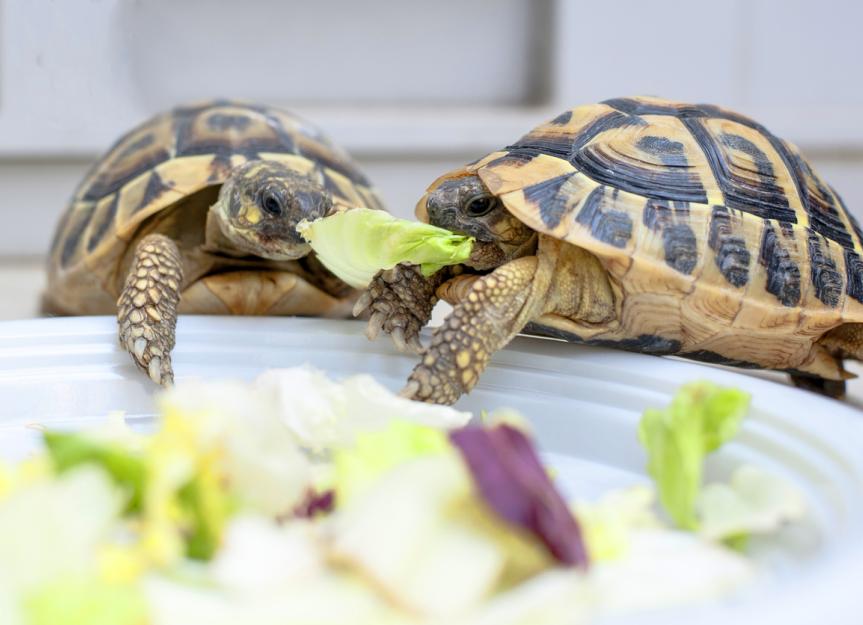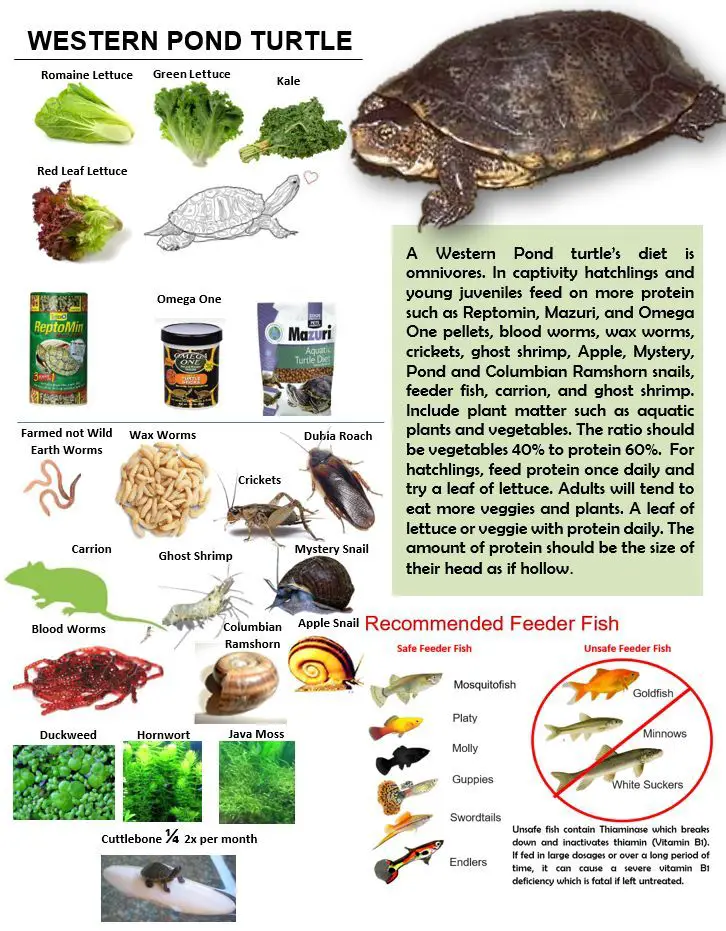When it comes to the diet of pond turtles, there is a wide variety of foods that they consume. These fascinating creatures are omnivores, meaning they eat both plant and animal matter. Their diet includes a diverse range of food items, and understanding what pond turtles eat is crucial for their well-being in captivity or in the wild.
:strip_icc()/how-much-should-i-feed-my-red-eared-slider-1238367-5c59c9c646e0fb00012bb344.png)
Credit: www.thesprucepets.com
Plant Matter
Pond turtles consume a significant amount of plant matter. They are known to feed on various aquatic plants such as duckweed, water lettuce, water hyacinth, and algae. These plants provide essential nutrients and fiber to their diet, aiding in digestion and overall health.
Animal Matter
Along with plant matter, pond turtles also feed on a variety of animal matter. This includes insects, snails, small fish, tadpoles, and even carrion. In the wild, they actively forage for these food items, displaying their adaptability and opportunistic feeding behavior.

Credit: www.petmd.com
Commercial Turtle Food
For pond turtles kept as pets, commercial turtle food is a convenient option. These specially formulated pellets provide a balanced diet that mimics the nutritional content of the turtle’s natural diet. It is essential to choose high-quality commercial turtle food to ensure that the turtle receives all the necessary nutrients for optimal health and growth.
Supplements
In some cases, pond turtles may benefit from the addition of supplements to their diet. Calcium and vitamin supplements can be sprinkled on their food to ensure they receive essential nutrients, particularly when kept in captivity. These supplements help support their shell and bone health, preventing potential deficiencies.
Feeding Habits
Understanding the feeding habits of pond turtles is vital for their care. These turtles are generally opportunistic feeders, meaning they will consume food whenever it is available. However, it’s important to monitor their feeding to prevent overfeeding, which can lead to obesity and other health issues.
Feeding Frequency
The frequency of feeding pond turtles can vary based on their age and individual needs. Juvenile turtles may require daily feeding, while adult turtles can be fed every other day or a few times a week. Monitoring their weight and adjusting the feeding schedule accordingly is crucial for maintaining their health.
Factors Affecting Diet
Several factors can influence the diet of pond turtles. These include environmental conditions, availability of food sources, seasonal variations, and reproductive status. Understanding these factors can help caretakers and researchers make informed decisions regarding the dietary needs of pond turtles.
Conclusion
In conclusion, pond turtles have a diverse diet that includes plant matter, animal matter, commercial turtle food, and supplements. Their omnivorous nature and opportunistic feeding habits make them adaptable to various food sources. Whether in the wild or in captivity, providing a well-balanced diet is essential for the health and well-being of pond turtles.
By understanding what pond turtles eat and how their diet can be managed, caretakers and enthusiasts can contribute to the conservation and welfare of these remarkable reptiles.




